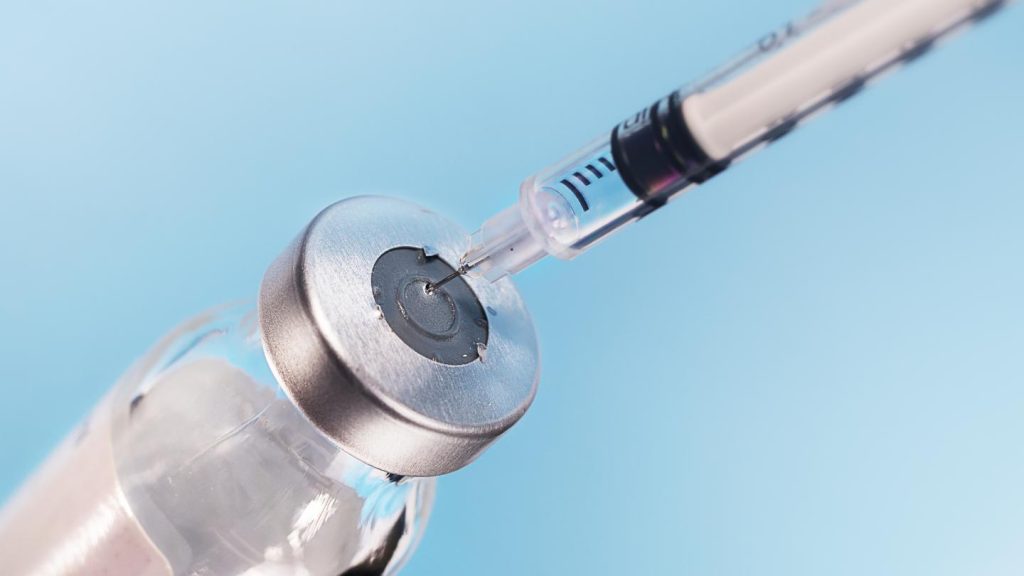
Choosing Wisely: Weighing the Options Bariatric Surgery vs Weight Loss Injections
Weight loss is not just about physical transformation; it’s about reclaiming your health, confidence, and quality of life. At Ascension Saint Agnes Bariatric Surgery, we understand how challenging the journey can be, and we are here to guide and support you every step of the way. Our bariatric surgeries are not simply procedures—they are life-changing interventions tailored to help you achieve sustainable weight loss and improve your overall well-being. This blog explores the effectiveness, risks, and ideal candidates for both surgery and injections to help you make an informed decision.
Key Takeaways
- Bariatric surgery offers significant long-term weight loss and health benefits, effectively treating obesity-related conditions.
- Weight loss injections, such as GLP-1 agonists, provide a non-invasive alternative with promising effectiveness but require ongoing commitment and monitoring.
- Combining bariatric surgery with weight loss medications can enhance weight loss outcomes, highlighting the importance of personalized treatment plans for better results.
Understanding Bariatric Surgery

Bariatric surgery, also known as weight loss surgery, is a proven strategy for achieving lasting weight reduction and managing obesity-related conditions. This procedure modifies the digestive system to limit food intake and reduce nutrient absorption, leading to significant weight loss and improved metabolic health. For many facing severe obesity, this surgery has been transformative, offering a path to a healthier lifestyle and relief from persistent weight issues.
Beyond facilitating weight loss, bariatric surgery addresses obesity directly, reducing risks like diabetes and hypertension. By altering the digestive process, individuals experience profound changes that help resolve chronic weight management challenges.
Choosing surgery can be daunting, but with the right team, it becomes manageable. Our experienced bariatric surgeons and supportive staff work closely with you to create a personalized treatment plan. From consultation to post-operative care, we provide the tools and guidance needed for long-term success. Your journey to a healthier, happier self-starts with us.
Types of Bariatric Procedures
At Ascension Saint Agnes Bariatric Surgery, we specialize in providing advanced surgical solutions for weight loss, including gastric sleeve and gastric bypass procedures. These proven techniques offer significant and sustainable weight loss for individuals struggling with obesity, along with remarkable improvements in obesity-related conditions such as diabetes, hypertension, and sleep apnea.
- Gastric Sleeve Surgery: This minimally invasive procedure involves reducing the stomach’s size by about 80%, which limits food intake and reduces hunger hormones. It’s one of the most popular bariatric surgeries, providing rapid and long-term weight loss with minimal risks.
- Gastric Bypass Surgery: Often referred to as Roux-en-Y, this surgery not only reduces stomach size but also reroutes the small intestine, limiting calorie absorption. It’s especially effective for patients with severe obesity and related health conditions.
Both procedures are designed to help you achieve your weight loss goals by losing a substantial percentage of your excess weight when traditional methods like diet and exercise have failed. With Ascension Saint Agnes Bariatric Surgery, you can trust that you are in the hands of skilled professionals who are committed to delivering personalized care and exceptional results.
Overall, every operative choice within these categories presents specific perks depending on patient-specific health considerations coupled with ambitions regarding the decline in fat levels.
Effectiveness of Bariatric Surgery
Bariatric surgery has gained a reputation for enabling individuals to achieve considerable average weight loss, which often brings about notable enhancements in both their health and daily living experience. Specifically, gastric bypass surgery can lead to the shedding of around 70% of superfluous body weight within one and a half to two years. Such prompt weight reduction proves transformative for those grappling with acute obesity and its consequent health dangers.
Notably, procedures such as the duodenal switch that incorporate aspects of both limitation and malabsorption may result in even more remarkable outcomes—patients typically lose approximately 80% of their surplus weight. This substantial decline not only eases the physical burden imposed by excessive fat but also markedly ameliorates medical conditions linked to obesity, including diabetes, heart disease, and high blood pressure. Given its track record in fostering enduring weight management alongside health improvement, bariatric intervention is an appealing course of action for numerous overweight individuals.
Beyond mere immediate slimming effects lies the potential for ongoing maintenance of reduced body mass levels. Those who undergo these operations witness profound alleviations in diseases correlated with obesity, leading them towards a more vigorous lifestyle marked by enhanced well-being. The persistent nature of post-surgery results reiterates how pivotal this surgical approach is when addressing extreme cases of obesity.
Exploring Weight Loss Injections

Weight loss injections, often referred to as GLP-1 agonists, may seem like a convenient, non-surgical alternative for managing weight. While they can offer some short-term benefits, it’s important to be aware of their limitations and risks:
- Temporary Results: Unlike bariatric surgery, the weight loss achieved through injections is often temporary. Once the injections are stopped, many individuals regain the weight they lost.
- Ongoing Costs: GLP-1 agonists require lifelong use to maintain results, which can lead to significant financial burdens over time, especially since insurance coverage for these medications is often limited.
- Side Effects: Common side effects include nausea, vomiting, and gastrointestinal discomfort. In rare cases, more severe complications like pancreatitis and thyroid tumors have been reported.
- Limited Effectiveness for Severe Obesity: These injections are not as effective as surgery for individuals with a high BMI or serious obesity-related health conditions.
At Ascension Saint Agnes Bariatric Surgery, we believe in offering solutions that deliver lasting, transformative results. Our bariatric surgeries address the root causes of obesity, not just the symptoms, helping you achieve a healthier lifestyle with long-term benefits. Surgery is a proven method that not only facilitates substantial weight loss but also reduces the risk of obesity-related diseases, allowing you to enjoy a better quality of life.
Comparing the Benefits and Risks

When assessing the options of bariatric surgery versus weight loss injections, it’s crucial to consider the advantages and potential drawbacks each method presents as part of a comprehensive obesity treatment plan. Bariatric surgery typically results in greater and more enduring weight reduction compared to its non-surgical counterpart. Weight loss injections are an appealing alternative due to their non-invasive nature and lower risk profile. Ultimately, selecting between these treatments’ hinges on personal health considerations, desired outcomes for losing weight, and individual preferences.
Economic factors also come into play when deciding between these two interventions. Insurance coverage often extends to bariatric surgeries if they are medically warranted, alleviating financial burdens for those who qualify. On the other hand, long-term expenses associated with GLP-1 injections can accrue considerably over time.
Integrating both modalities might amplify efficacy in shedding excess pounds by creating a customized regimen catering specifically to the requirements of each patient.
Health Benefits
Bariatric surgery stands out as a robust solution for achieving substantial weight loss and improving overall health. Patients often experience a remarkable reduction in body weight, typically shedding about 25% to 35% of their initial body weight. This significant decrease not only transforms physical appearance but also enhances quality of life by alleviating obesity-related conditions such as diabetes, heart disease, and high blood pressure.
On the other hand, weight loss injections like GLP-1 agonists, although offering a non-invasive option, tend to deliver less pronounced weight reduction. The effects of these injections are often temporary, with many individuals regaining weight once the treatment is discontinued. Furthermore, the ongoing costs associated with these medications can become a financial burden, especially since insurance coverage is often limited.
Bariatric surgery, by addressing the root causes of obesity, provides lasting improvements in metabolic health and helps patients maintain their weight loss over the long term. While GLP-1 agonists can aid in managing hunger and increasing satiety, the profound and sustained benefits of bariatric surgery make it a more effective choice for those seeking a comprehensive solution to their weight and health challenges.
Risks and Side Effects
When considering bariatric surgery and weight loss injections, it’s crucial to weigh their respective risks and benefits. Bariatric surgery stands out as a reliable solution for those seeking substantial, long-term weight loss. While it does carry some risks, they are often outweighed by the profound health improvements and sustained weight reduction it offers. Patients who undergo bariatric surgery experience significant relief from obesity-related conditions, such as diabetes, heart disease, and high blood pressure, making it a transformative option for many.
Conversely, weight loss injections like GLP-1 agonists, although less invasive, come with their own set of challenges. These injections often lead to temporary weight loss, with many individuals regaining weight once the treatment is discontinued. Additionally, they can cause digestive issues such as nausea, diarrhea, and constipation, and in rare cases, more severe conditions like pancreatitis or thyroid tumors. The ongoing need for these injections can also result in significant financial burdens, as they require lifelong use to maintain results, and insurance coverage is often limited.
Ultimately, while GLP-1 injections may provide a short-term solution, bariatric surgery offers a more comprehensive and enduring approach to weight loss and health improvement, addressing the root causes of obesity and enabling patients to achieve a healthier lifestyle.
Read more: 3 Reasons Why Diarrhea Happens After Gastric Sleeve Surgery and How to Deal With It
Eligibility Criteria and Considerations

Assessing whether an individual qualifies for bariatric surgery or weight loss injections is a vital part of selecting the appropriate approach to losing weight. Bariatric surgery is a transformative solution that offers substantial and long-lasting weight loss, significantly improving obesity-related health conditions. It is particularly beneficial for individuals with higher BMIs and severe health issues linked to obesity, providing a surgical resolution that addresses the root causes of weight gain. Engaging with healthcare professionals is crucial to determine if one is fit for this life-changing intervention.
In contrast, while weight loss injections such as GLP-1 agonists present a non-surgical option, they often fall short of delivering the same level of effectiveness as bariatric surgery. These injections typically result in temporary weight loss, with many individuals regaining weight once treatment ceases. Additionally, the ongoing costs and potential side effects, such as gastrointestinal discomfort, make injections a less favorable choice for those seeking a comprehensive and enduring solution to obesity.
BMI and Health Conditions
To qualify for bariatric surgery, individuals are expected to have a body mass index (BMI) of 35 or higher. Those with a BMI between 30 and 35 may also be eligible if they suffer from related health complications such as high blood pressure or diabetes. These criteria ensure that bariatric surgery is reserved for those who will benefit most from its profound health improvements.
Candidates must also weigh under 450 pounds due to medical equipment limits and secure a referral from their primary care physician. Most insurance providers require documented attempts at medically supervised weight loss before granting coverage for the procedure. This rigorous vetting process helps ensure that bariatric surgery is undertaken by patients most likely to reap its benefits.
Lifestyle and Commitment
Successful weight loss through bariatric surgery requires a significant commitment to lifestyle changes. Diet and exercise are crucial components of recovery, with patients advised to keep a food journal, track their steps, set daily goals, and maintain a healthy eating routine for long-term success.
Continuous support from healthcare professionals is essential for maximizing the effectiveness of surgical treatments. At Ascension Saint Agnes Bariatric Surgery, patients receive personalized care plans that consider surgical, medical, dietary, and behavioral factors, providing comprehensive support throughout their weight loss journey. This holistic approach ensures that patients remain committed and achieve their weight loss goals.
Read more: Weight Loss Medication Vs Surgery: Comparing The Two
Summary
In conclusion, those struggling with obesity have viable options in both weight loss surgery and injections. It’s important for patients to assess the advantages and potential downsides of each method, ensuring they meet the necessary criteria before beginning their weight loss journey. Combining both treatments can enhance their effectiveness, tackling the physical and behavioral aspects of obesity.
Ascension Saint Agnes Bariatric Surgery offers comprehensive bariatric surgery serving Maryland, characterized by a strong support network, skilled surgeons, and a dedication to exceptional care standards. For individuals contemplating bariatric surgery as a path to improved health, we provide expertise and supportive resources essential for lasting health benefits. Patients are encouraged to consult with healthcare professionals to determine which treatment strategies best fit their personal health goals. Reach out to us today to embark on your transformative journey!
Frequently Asked Questions
1. Is weight loss surgery better than injections for long-term results?
Weight loss surgery, such as bariatric surgery, often provides more substantial and long-lasting results compared to weight loss injections. While injections can offer temporary benefits, surgery addresses the root causes of obesity, leading to sustained weight loss and improvement in obesity-related conditions.
2. What are the common side effects of weight loss injections?
Common side effects of weight loss injections, like GLP-1 agonists, include nausea, vomiting, and gastrointestinal discomfort. In rare instances, more severe complications such as pancreatitis and thyroid tumors can occur.
3. How does bariatric surgery help with obesity-related medical conditions?
Bariatric surgery can significantly alleviate obesity-related medical conditions by promoting substantial weight loss. Patients often experience improvements in conditions such as diabetes, high blood pressure, and sleep apnea, leading to better overall health.